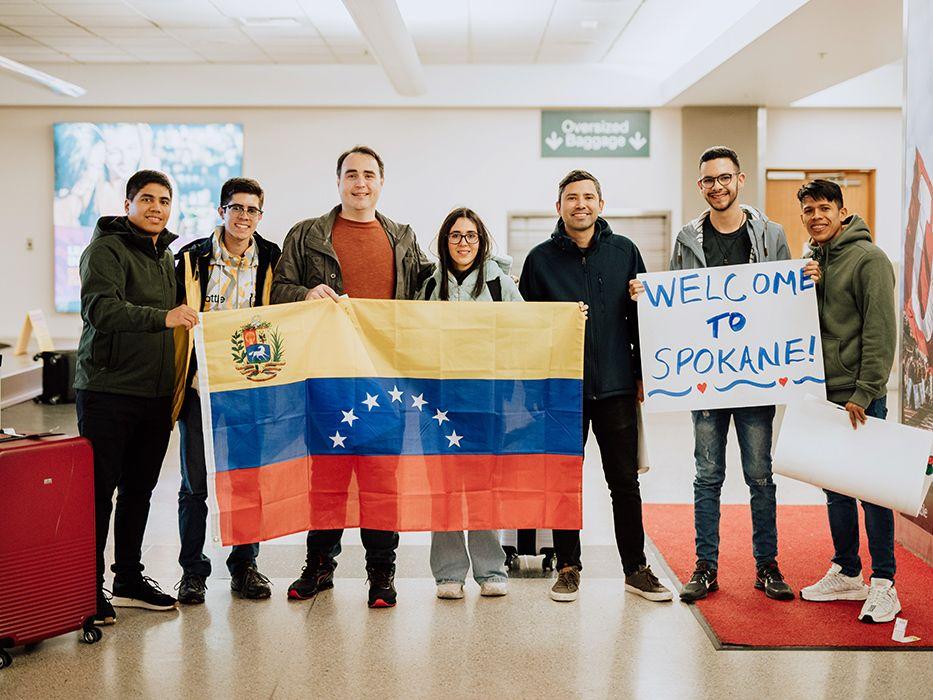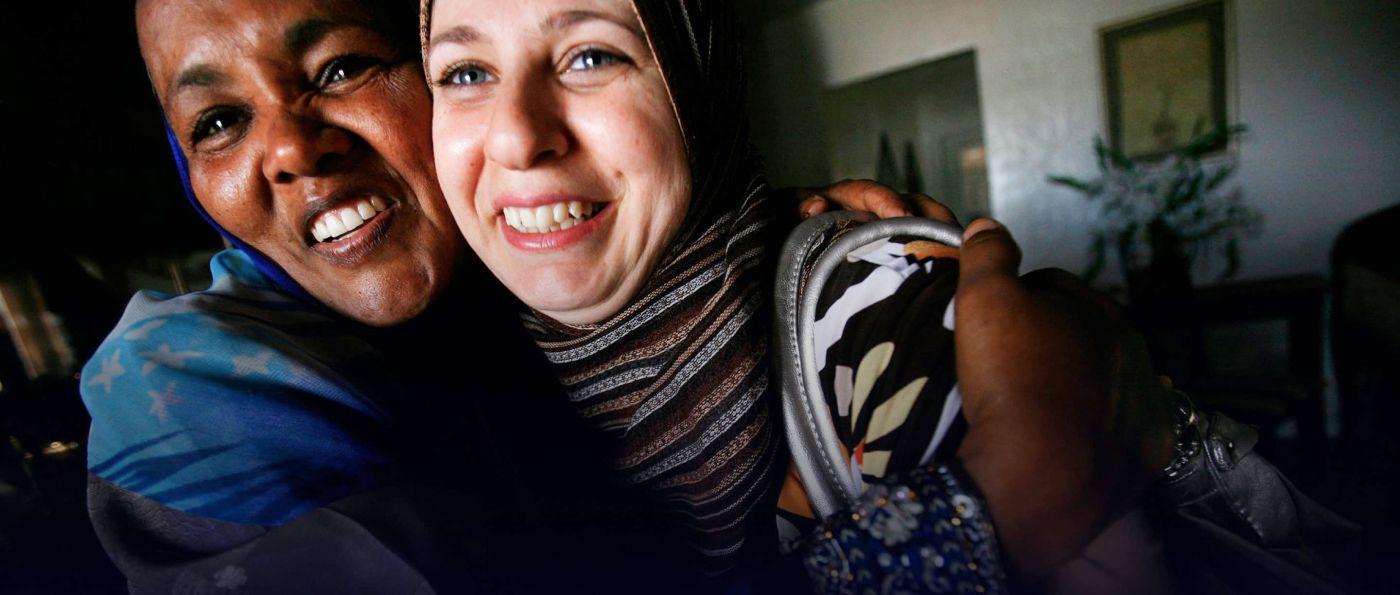Sponsor Latin Americans
Through the Processes for Cubans, Haitians, Nicaraguans, and Venezuelans, American sponsors provided safety and community to newcomers fleeing violence and persecution.


Alert
On March 21, the U.S. government announced that it will terminate existing humanitarian parole status for CHNV newcomers.
Latest updates
What impact will policy changes have on newcomers, refugees, and sponsorship programs? Check out our latest explainers to learn more.
Sponsorship FAQs
What’s the latest on CHNV?
On June 12, 2025, the Department of Homeland Security announced that it began sending termination notices for humanitarian parole status and work authorization to individuals who arrived in the U.S. through the Processes for Cubans, Haitians, Nicaraguans, and Venezuelans (CHNV) sponsorship program.
Individuals affected received notification through their myUSCIS account.
If a newcomer you know has been impacted by this decision:
- Get legal help immediately: All individuals with a primary status of humanitarian parole should consult an immigration attorney immediately. Find an immigration attorney through the American Immigration Lawyers’ Association search tool.
- Consult our parole termination resources hub, which includes resources to understand newcomers’ rights and possible next steps.
- Sponsors can consult our guide to alternative legal options for humanitarian parolees to seek professional legal counsel.
What happens to my pending application or approved sponsorship if the newcomer hasn’t arrived yet?
With the pause of the U4U program and the end of the CHNV program, pending applications or approved sponsorships for newcomers that have not arrived will not be processed.
These programs are not accepting new applications, pending applications will not be processed, and no new travel authorizations are being issued. We are closely monitoring official updates and will share further information as it becomes available.
If you have questions about a specific case, you can ask your congressional representatives to follow up directly with USCIS on your behalf. Use our guide for information on how.
How does the pending lawsuit related to the termination of parole affect the CHNV or U4U newcomer I sponsored?
We are tracking the Doe v. Noem lawsuit that challenged the U.S. government’s actions to end humanitarian parole processes including CHNV and U4U. We will provide updates once a final order is made. For more up-to-date information, you can follow the case here.
How will CHNV newcomers know if their parole status has been terminated?
On June 12, the Department of Homeland Security (DHS) announced that it began sending termination notices for humanitarian parole status and work authorization to individuals who arrived in the U.S. through CHNV. This is the result of the May 30 Supreme Court decision granting the Trump administration’s emergency request to terminate humanitarian parole status for individuals who arrived in the U.S. through the CHNV sponsorship program.
Individuals affected by the May 30 Supreme Court decision will receive notification through their myUSCIS account and should check the online account regularly for updates.
How will CHNV newcomers know if they can stay in the U.S.?
All individuals who arrived in the U.S. through CHNV should seek advice from an immigration attorney immediately to determine if they already have alternative legal status, or, if not, what viable options remain for them.
Individuals affected by the May 30 Supreme Court decision will receive notification through their myUSCIS account and should check the online account regularly for updates.
Find an immigration attorney through the American Immigration Lawyers Association search tool.
How does the termination of parole status for CHNV beneficiaries affect their employment authorization?
The May 30 Supreme Court ruling allowed the government to end CHNV humanitarian parole and employment authorization. Individuals affected by this decision will receive notification through their myUSCIS account.
If the individual has employment authorization based on a different legal status (such as asylum or TPS), it will not be affected.
Stories of Welcome
Americans across 12,000 zip codes in all 50 states changed lives through sponsorship.



Stories of Welcome
Colombian refugees welcomed to a ‘beautiful city where we could live in peace’
April 12, 2024

